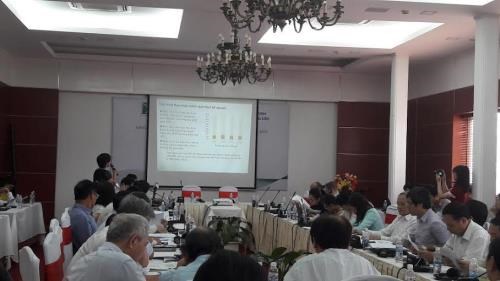A representative from PanNature suggested clearly defining the non-profit status of science and technology organizations to facilitate research, technology transfer, and application. This clarity would also enhance international collaboration and attract funding.

Mining-sourced tax collection needs improvements
Tax collected from the mining of natural resources, excluding crude oil, accounted for between 0.9 – 1.1 percent of the total state tax collections in the 2011-2013, according to the Ministry of Finance.
The amount is a far cry from the scale of exploitation activities, said delegates to a workshop held by People and Nature Reconciliation (PanNature) on May 13.
Le Xuan Truong from the Academy of Finance said imperfect natural resource taxation policy has created loopholes for enterprises involved to evade tax.
Besides, the coordination among tax agencies and natural resources and environment bodies remains inefficient, resulting in remarkable tax gap, he said.

Tran Thanh Thuy, the coordinator of the Minerals Alliance, suggested the application of international standards on taxation management, naming the Extractive Industries Transparency Initiative (EITI), which has been used by 49 nations around the world, including the UK, the US, and Norway.
Vietnam has accessed the EITI since 2006 but has yet joined it, according to Thuy.
The country ranked seventh in the Asia – Pacific region in terms of crude oil production, and contributed 2.3 percent to the world’s output of tin and 1.8 percent to the globe’s cement production in 2012, participants heard.
According to the Ministry of Natural Resources and Environment, Vietnam dug out 42.6 million tonnes of coal, 3 million tonnes of iron ore, 3 million tonnes of apatite, 193,000 tonnes of manganese, and a huge volume of other minerals in 2013.
PanNature Director Trinh Le Nguyen was worried that if that exploitation tempo in the country continues, natural resources will be exhausted in the foreseeable future.



